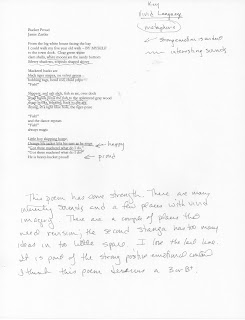Millions Projects are due; projects were shared.
The following assignment is due tomorrow:
The following assignment is due tomorrow:
Close Reading of Night
Chapters 1-3
There are many different issues to address when reading Night. The passages I have selected below are ones that address some of the most significant and recurring issues. First review the entire set of references. Choose five of the passages to write very detailed responses to. Create a journal entry or note on each of the passages.
Page 5
“What question and answer is one?”
Page 10
“The Eight Days of Passover.
The weather was sublime.”
Irony. Are there other examples of irony in the text?
Page 12
“Most people thought that we would remain in the ghetto until the end of the war, until the arrival of the Red Army. Afterward everything would be as before. The ghetto was rules by neither German nor Jew; it was ruled by delusion.”
Could Ellie have had this point of view from the Ghetto?
Is being ruled by delusion always bad?
Page 20
“Oh God, Master of the Universe, in your infinite compassion, have mercy on us…”
Will this prayer be answered?
Page 24
Mr. Schachter cries out, “Look! Look at this fire! This terrible fire! Have mercy on me!” Ellie relates, “Some pressed against the bars to see. There was nothing. Only the darkness of night.”
How do you explain this episode?
Page 29
“The beloved objects that we had carried with us from place to place were now left behind in the wagon, and with them, finally our illusions.”
What objects in your life create illusions? Would delusions be a better word in the text of Night? What about for objects in your life? Objects that you see in other peoples’ lives?
Page 30
“’Shut up, you moron, or I’ll tear you to pieces! You should have hanged yourselves rather than come here. Didn’t you know what was in store for you here in Auschwitz? You didn’t know? In 1944?’”
Should they have known?
Page 31
In the cattle car, young men and fathers have an argument. To revolt, or not. The argument is won by saying, “We mustn’t give up hope, even now as the sword hangs over our heads, So taught our sages…..”
Do you agree that this was the argument to have? Is it better to die in a hopeless battle, or to maintain hope?
Page 32
A truck load of babies is dumped in a flames.
Ellie writes, “I did see this, with my own eyes … children thrown into the flames. (is it any wonder that ever since then, sleep tends to elude me?)
There are those today who deny that The Holocaust of WWII happened. Do you think the monstrosity of the events makes it easier, or harder to deny the truth?
Page 33
“I don’t know whether, during the history of the Jewish people, men have ever before recited Kaddish for themselves.
Ellie writes, “For the first time, I felt anger rising within me. Why should I sanctify His name? The Almighty, the eternal and terrible Master of the Universe, chose to be silent. What was there to thank Him for?
What would you say to Ellie? Is what you would say were you standing next to him in 1943 be different from what you would say to him were you to meet him today?
Page 34
“Never shall I forget.”
Consider this passage in the center of the page.
Page 42
“I became A-7713.”
What is the importance of a name? What is the significance of making a person a number?
Page 45
“Akiba Drumer said:
‘God is testing us. He wants to see whether we are capable of overcoming our base instincts, of killing the Satan within ourselves. We have no right to despair. And if HE punishes us mercilessly, it is a sig that He loves us that much more…”
Page 46
“How we would have liked to believe that. We pretended, for what if one of us still did believe?”
Is this kind of belief a delusion, or a source of power?
Page 46
“On the way, we saw some young German girls. The guards began to tease them. The girls giggled. They allowed themselves to be kissed and tickled, bursting with laughter. They all were laughing, joking, and passing love notes to one another. At least, during all that time, we endured neither shouting nor blows.”
Are bystanders evil? Guilty? Can the girls be held libel for being girls?
Consider the passages that I have asked you to pay special attention to above. Now read, or review Chapter 4 (pages 47-65). Which passages seem most important to you in this section. Copy the passage down; write a question or prompt that you think is important to consider in conjunction with the passage. You should have at least two passages.


